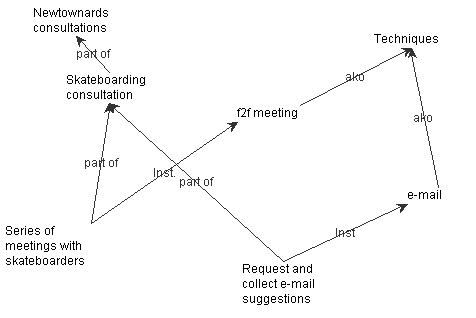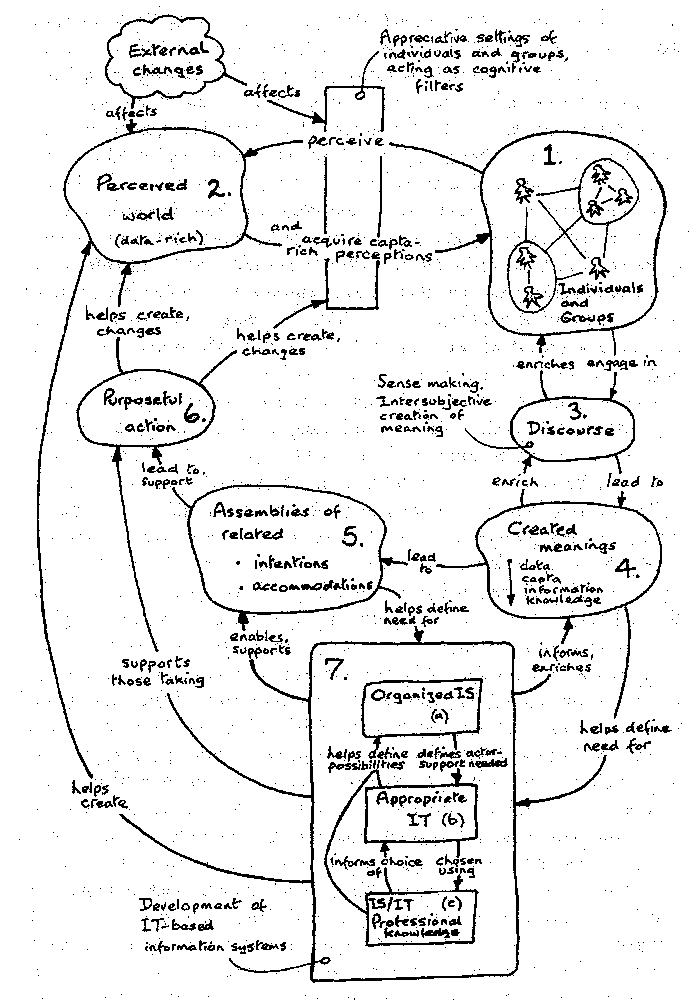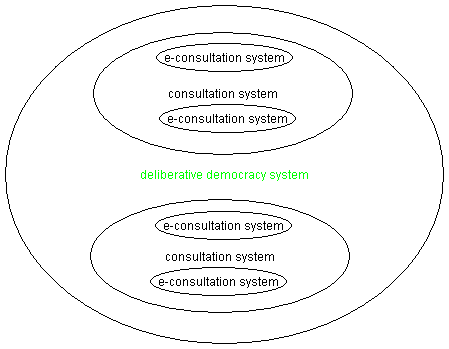Difference between revisions of "TheoryDraw"
From E-Consultation Guide
| (One intermediate revision by the same user not shown) | |||
| Line 2: | Line 2: | ||
Before we have [[Theory|theories]] to evaluate e-consultation, we need to map out the world we are trying to understand. This page is for some diagrams attempting to do that. | Before we have [[Theory|theories]] to evaluate e-consultation, we need to map out the world we are trying to understand. This page is for some diagrams attempting to do that. | ||
===Hierarchy of systems === | ===Hierarchy of systems === | ||
| − | + | [[Image:econsultsystems.gif]] | |
===Relationships between systems=== | ===Relationships between systems=== | ||
| − | + | [[Image:econsultsysrels.gif]] | |
===Relationships in a consultation=== | ===Relationships in a consultation=== | ||
It is possible to map out each consultation, as shown in this semantic network: | It is possible to map out each consultation, as shown in this semantic network: | ||
| − | + | [[Image:econsultexsemnet.gif]] | |
===Process for organisational meaning=== | ===Process for organisational meaning=== | ||
Checkland's rich picture from ''Information, Systems and Information Systems''. | Checkland's rich picture from ''Information, Systems and Information Systems''. | ||
| − | + | [[Image:pom.gif]] | |
| − | |||
Latest revision as of 20:57, 28 December 2007
Contents
Diagrams to help understand e-consultation
Before we have theories to evaluate e-consultation, we need to map out the world we are trying to understand. This page is for some diagrams attempting to do that.
Hierarchy of systems
Relationships between systems
Relationships in a consultation
It is possible to map out each consultation, as shown in this semantic network:

Process for organisational meaning
Checkland's rich picture from Information, Systems and Information Systems.


